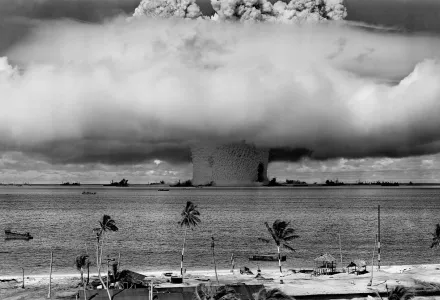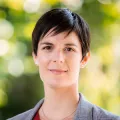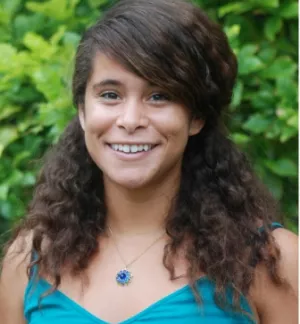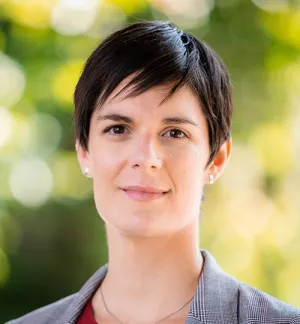
MIT’s Katlyn Turner and four other nuclear scientists issue a call for antiracist actions within their profession.
A group of nuclear scientists recently published a call for anti-racist action in the Bulletin of the Atomic Scientists, urging researchers and their colleagues to confront a long legacy of racial disparities and injustices in the history of the nuclear field, many of which continue today.
Racism and colonialism have influenced which countries and communities shoulder the environmental and health burdens related to the building and testing of nuclear weapons, the authors explain. These forces have also helped determine which countries have enjoyed the economic benefits of nuclear power, and which ones have had a seat at the table for nuclear disarmament talks. And today, people of color continue to face educational and professional barriers in nuclear science as well as other STEM fields.
Katlyn Turner, a research scientist in the MIT Media Lab, is one of the five co-authors, along with MIT alumna Aditi Verma ’12, PhD ’19 and three others. MIT Institute Professor Susan Silbey co-edited the piece. Notably, the five co-authors and two of the three co-editors are women, and a majority of the group are people of color. MIT News talked with Turner about the group’s call for antiracist action and accountability in the nuclear community.
Q: In your piece in the Bulletin you describe a long history of discriminatory practices in the nuclear field, going all the way back to its origins, including in mining and processing, bomb testing, and hazardous nuclear waste. How much of that legacy do you see still affecting the field today?
A: I think the story of the nuclear field is similar to the story of most of America. The nuclear field developed during a time when racist and colonialist ideas were very normalized. In America in the early- to mid-20th century, it was very normal and accepted to think of different races as inferior, to think of different religions as inferior, or to think of different cultures as inferior. So when you have a system like the nuclear enterprise developing during the time where these sorts of ideas are prevalent, you’re going to get a nuclear field that is infused with those norms and as a result systematically erases or dismisses the contributions and concerns of people of color.
The full text of this publication is available via MIT News Office.









